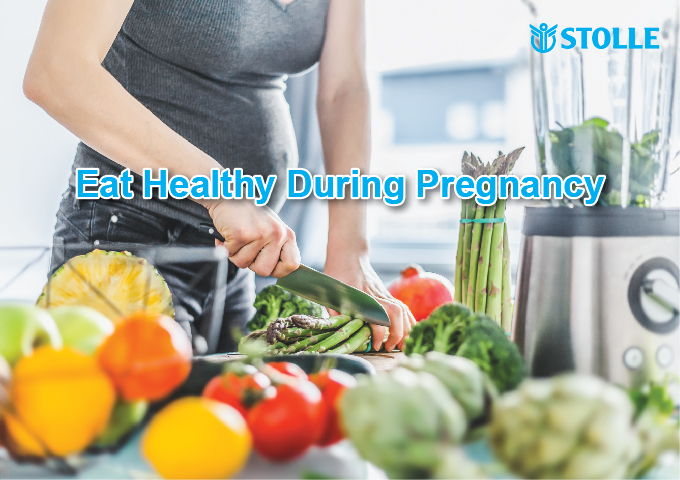


Eat Healthy During Pregnancy
As the body of a pregnant woman changes, the nutritional needs during different stages of pregnancy also vary. A balanced diet is crucial during pregnancy, as it not only affects the mother's health but also directly impacts the growth and development of the fetus. Let's take a look at the nutritional needs during different stages of pregnancy and the foods that should be prioritized.
First, regarding weight, how many kilograms should a pregnant woman gain?
|
Pre-pregnancy Weight Status |
Body Mass Index (BMI) |
Recommended Weight Gain (kg) |
|
Underweight |
< 18.5 kg/m² |
12.5 - 18.0 |
|
Normal weight |
18.5 - 24.9 kg/m² |
11.5 - 16.0 |
|
Overweight |
25 - 29.9 kg/m² |
7.0 - 11.5 |
|
Obese |
≥ 30 kg/m² |
5.0 - 9.0 |
Early Pregnancy (First 12 weeks):
During early pregnancy, the baby's organs begin to form, so the mother needs to ensure adequate intake of essential nutrients, especially folic acid, vitamin B6, and vitamin B12. These nutrients are crucial for the development of the fetal nervous system. For example, folic acid intake can prevent neural tube defects in the fetus. Additionally, pregnant women need to ensure sufficient intake of protein, calcium, and iron to support the growth of the fetus and the mother's blood circulation.
Mid-Pregnancy (13-26 weeks):
The mid-pregnancy period is a time of rapid fetal growth, so the energy and nutritional needs of the mother increase. During this stage, pregnant women need to consume adequate amounts of protein, calcium, vitamin D, and folic acid to support the development of the fetal skeletal system, nervous system, and immune system. Moreover, they should monitor their weight gain to avoid excessive obesity, which could adversely affect both maternal and fetal health.
Late Pregnancy (After 27 weeks):
In late pregnancy, pregnant women require more energy and nutrients to support fetal growth and maintain their own health. At this time, the uterus becomes larger, putting pressure on the digestive organs, which may lead to indigestion and heartburn. Therefore, pregnant women should choose easily digestible foods and avoid overeating. Additionally, consuming sufficient fiber and water helps prevent constipation.
The importance of diet during pregnancy cannot be overlooked. By maintaining a balanced and nutritious diet, pregnant women can ensure that both they and their babies receive adequate nutrition, promoting healthy fetal development and reducing the risk of various health issues for the mother.
Furthermore, consider adding a cup of Stolle milk to your daily diet. Stolle ImmNuPlus and ImmNuPro contain high-quality proteins and patented immune nutrients, making it an excellent source of protein and calcium. It directly supports the immune system, reduces infections, enhances immunity, and achieves immune balance, keeping diseases at bay.

If there are any questions regarding nutrition, pregnant women should consult a doctor or a nutritionist for professional advice.







